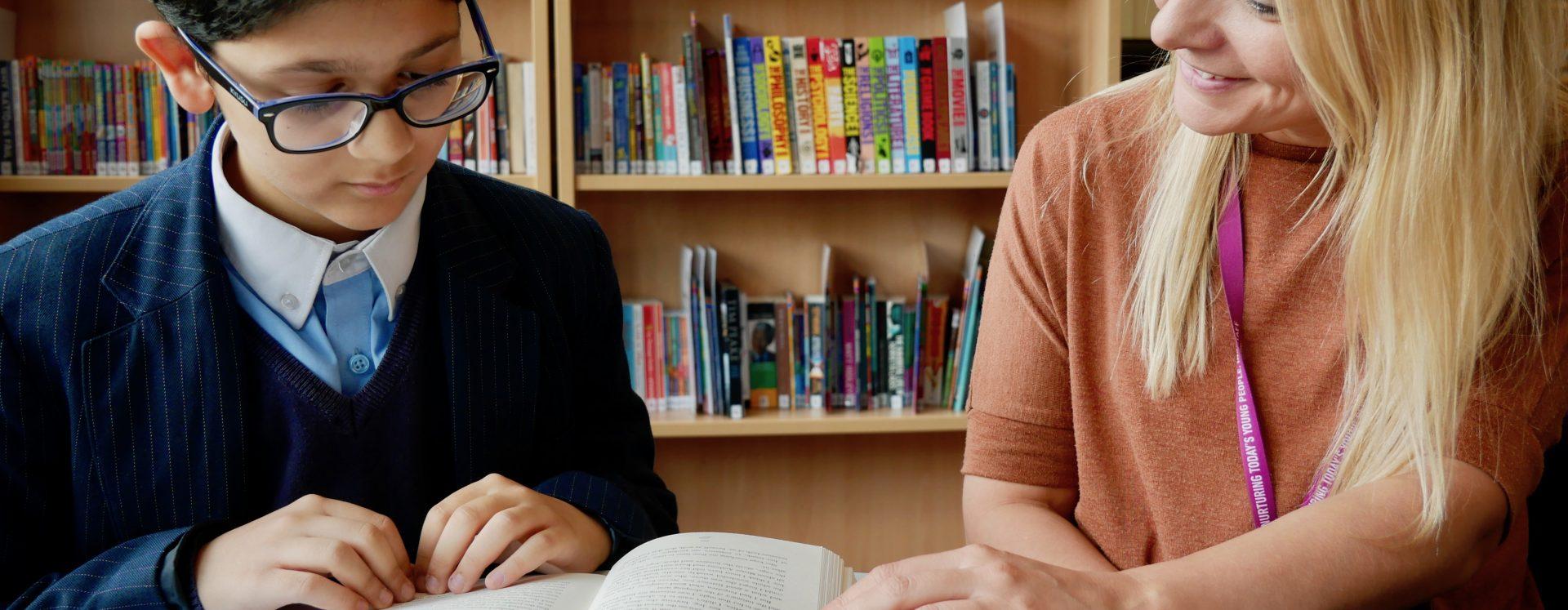Maths
Why study Maths?
Mathematics is a universal language that enables understanding of the world. It is an integral part of the curriculum. Beyond the study of numbers, shapes and patterns, it also provides important tools for work in fields such as engineering, physics, architecture, medicine and business. It nurtures the development of a logical and methodical mindset, as well helping to inculcate focus and the ability to solve all manner of problems. Attainment in the subject is also the key to opening new doors to further study and employment
There are three guiding elements which are brought to life in the mathematics curriculum:
Educational excellence: Mathematics’ teachers engender an appreciation of the beauty and power of mathematics and a sense of enjoyment and curiosity about the subject
Character development: Mathematics’ teachers nurture a logical and methodical mindset and help pupils to reason and solve problems. Quiet focused mathematical scholarship is also promoted
Service to communities: Mathematics’ teachers promote teamwork and collaboration in the classroom when solving problems. Pupils are encouraged to use their mathematical skills in everyday life and recognise how they underpin advances in science and technology
How will I study Maths?
Pupils learn to:
- Become fluent in the fundamentals of mathematics, including through varied and frequent practice with increasingly complex problems over time, so that pupils develop conceptual understanding and the ability to recall and apply knowledge rapidly and accurately.
- Reason mathematically by following a line of enquiry, conjecturing relationships and generalisations, and developing an argument, justification or proof using mathematical language.
- Solve problems by applying their mathematics to a variety of routine and nonroutine problems with increasing sophistication, including breaking down problems into a series of simpler steps and persevering in seeking solutions
What will I study at Key Stage 3?
Our Key Stage 3 curriculum begins in Year 7 by focusing on finding and filling any gaps from Key Stage 2 and establishing a strong grasp of the number line, fractions, and decimals. Introductions to Key Stage 3 algebra and shape are gradual, with the aim of building confidence gradually and sequentially.
We continue in Year 8 by building on the algebra and shape introduced in Year 7. Graphs, sequences, and probability are also explored at higher levels and connections between different branches start to be made. Students are given time to build on declarative knowledge across the many areas of mathematics.
Our Key Stage 3 continues into Year 9 and focuses on developing strong procedural knowledge on the parts of the curriculum covered so far. Confidence and accuracy in calculation and manipulation are emphasised as well as articulating reasons and linking different methods and ideas. Advanced ideas around ratio and proportion, inequalities and data handling are explored. Reinforcing and using mathematical concepts and notation help build a strong foundation for the higher-level maths to come.
What will I study at Key Stage 4?
In Key Stage 4, pupils focus on investigating some of the most advanced parts of the curriculum. Higher level trigonometry, surds, quadratic equations and data handling techniques are studied and intentional time is given to explore concepts in detail. Pupils begin to articulate ideas mathematically and make links to previous learning clearly.
Pupils will build connections between the different branches of mathematics to help solve high level problems. All topics covered are multi-layered and draw on a strong understanding of many areas of the curriculum. Pupils are required to communicate mathematically using established notation and ideas as they will in any further study of the subject. Pupils’ understanding and knowledge is deepened and there is also a clear focus on the use of the subject in the real world.
Assessment
Internal assessments take place task place at regular intervals throughout both KS3 and KS4. Broadly, there are two types of assessment; fluency composite task and a composite test.
Composite fluency tasks are completed at the end of a topic and are used to check whether students are reaching curriculum related expectations.
Composite tests are used to assess the cumulative coverage of the curriculum and check whether learning is sticking over time and if students are reaching curriculum related expectations.
External Examinations
Examination Board: Pearson/Edexcel
| Paper 1 | |
| Foundation tier (grades 1 to 5 available) or Higher tier (grades 4 to 9 available/grade 3 allowed) | |
| Overview | Focus |
|
Range of question types to cover:
|
| Paper 2 | |
| Foundation tier (grades 1 to 5 available) or Higher tier (grades 4 to 9 available/grade 3 allowed) | |
| Overview | Focus |
|
Range of question types to cover:
|
| Paper 3 | |
| Foundation tier (grades 1 to 5 available) or Higher tier (grades 4 to 9 available/grade 3 allowed) | |
| Overview | Focus |
|
Range of question types to cover:
|
Enrichment
Pupils have lots of opportunities for enrichment in both mathematics and mathematic related skills. There are lots of enrichment in lessons, such as lessons on origami, the maths in the Quran, maths and inheritance and also the maths associated with charitable giving in Islam. Students are also encouraged to take part in the UK Mathematics Trust competitions and challenges.
Careers
A good GCSE grade in Mathematics will allow you to choose A Levels and a degree in a variety of fields including Mathematics, Statistics, and Physics. These include careers in accountancy, engineering, economics, teaching, and computing.Most colleges will require at least a grade ‘5’ in GCSE Maths to be able to apply for A levels, and at least a grade ‘6’ or ‘7’ to be able to apply for A levels in Science and Mathematics.
Useful resources and revision support

